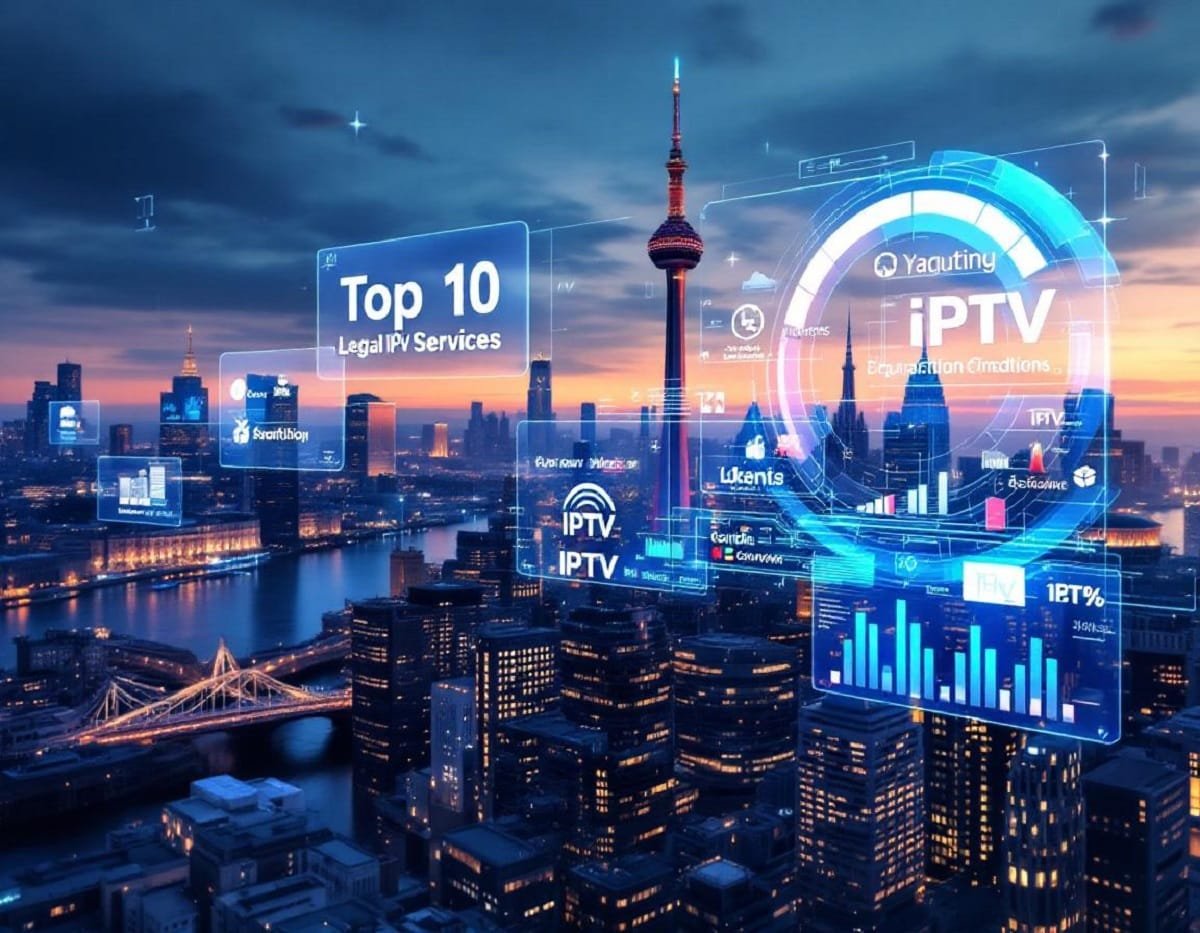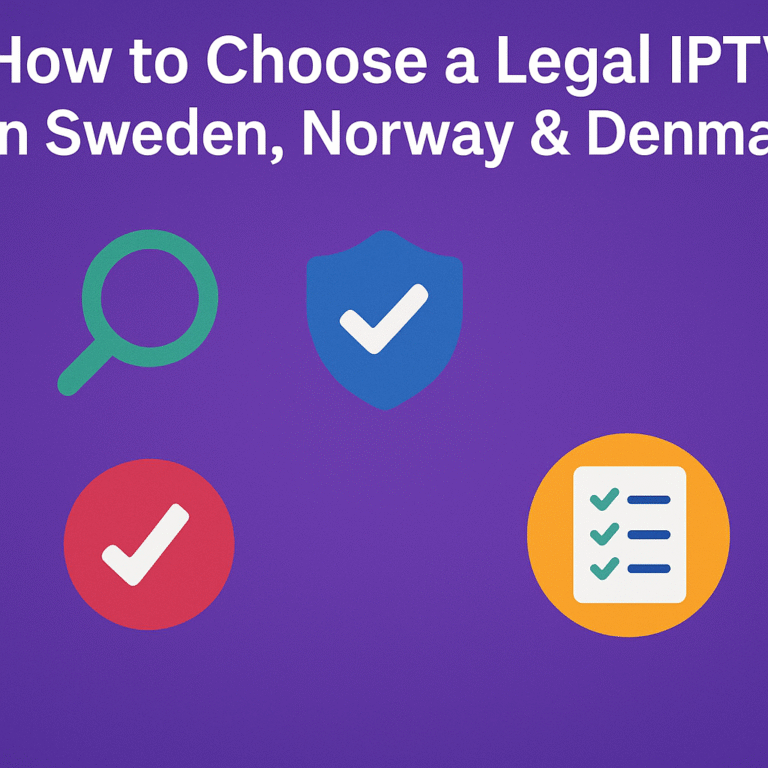What Makes an IPTV Service Legal? Explained Simply

IPTV (Internet Protocol Television) is changing how people tune in worldwide. No more cable cords, no endless waits for satellite signals—now, a reliable internet connection can pop live sports, hit TV shows, and movies right onto your screen in seconds.
But not every service that promises “all channels for a few bucks a month” is playing by the rules. There’s a big difference between legal IPTV and the shortcut, risky kind that could leave you in more trouble than you bargained for. Here’s how to spot the difference.
How Legal IPTV Services Work
IPTV lets you watch live TV and on-demand video over the internet instead of traditional broadcast or cable. A legal IPTV provider has permission from broadcasters and content creators to show movies, sports, news, and more.
For example, services like YouTube TV, Fubo TV, and others in the top 10 legal IPTV providers pay for the right to stream real channels and shows. They negotiate with networks and studios, making sure everything is covered under the law. It’s like renting a movie or going to a concert—you pay for what you’re allowed to see.
Providers must follow local copyright rules, which can vary by country. In some places, certain sports or TV rights are limited by region. Legal IPTV providers do the work to stay compliant, from securing distribution rights to putting customer protections in place.
 Photo by KATRIN BOLOVTSOVA
Photo by KATRIN BOLOVTSOVA
Content Licensing and Compliance
To go legit, an IPTV service must buy rights to its content. This might sound boring, but it’s the most important rule of the game. Imagine a restaurant paying for food supplies—no license, no service.
Content owners, like movie studios or sports leagues, sign formal deals with IPTV companies. These agreements spell out what can be shown, where, and for how long. Without these licenses, a service crossing its customers’ screens is likely breaking the law.
The process keeps creators and talent paid for their work, while protecting viewers from unpredictable shutdowns or legal headaches. For an in-depth look, check out how content licensing for IPTV works in practice.
Official Apps and Payment Methods
A real IPTV service is easy to spot—it looks and acts like any mainstream subscription TV service. You’ll find its app on the official Google Play or Apple App Store. It accepts credit cards, PayPal, and sometimes even direct billing from your phone provider.
Other signs of legitimacy:
- Customer support: Help is available, often by phone or chat.
- Free trials: Most offer try-before-you-buy options.
- Transparent company info: The business name, address, and terms are plain to see.
- Well-known names: Services like YouTube TV, DIRECTV Stream, and legal IPTV services are trusted brands with clear reputations.
If a provider only deals in crypto payments, asks you to sideload apps, or hides its company info, think twice.
Spotting Illegal IPTV: Major Warning Signs
The underground IPTV market is huge, but clearly risky. Anyone promising “every channel on earth for $10 a month” is usually cutting legal corners.
Look out for these red flags:
- Rock-bottom prices: Legal IPTV costs more—licensing isn’t cheap.
- Sketchy websites: Bad spelling, low-quality branding, or fake testimonials.
- Only accepts cryptocurrency: No credit card or PayPal options.
- Sideloaded apps: Not available through official app stores.
- Missing license info: No details about content rights or partnerships.
Illegal providers may vanish overnight, leaving users with nothing but a frozen screen.
Global Laws and Penalties
Laws crack down hard on illegal streaming almost everywhere. Countries like the UK, US, Germany, and Canada have strict penalties for using or selling these services.
Possible risks include:
- Fines up to thousands of dollars
- Criminal charges or even jail if running or distributing illegal IPTV
- Loss of internet service—some ISPs blacklist users
- Legal warnings or court orders
Police in Europe have even knocked on users’ doors over illegal streaming. Whether you’re watching a soccer match in London or a movie in Toronto, the risks are real.
Risks Beyond the Law: Security and Privacy
The dangers aren’t just legal. Illegal IPTV services often skimp on security measures. They may spread malware, steal your payment info, or bombard you with ads.
Other common headaches when dealing with these services:
- Unreliable streams or frequent downtime
- Poor customer service—if it exists at all
- Privacy risks—your data could be sold or leaked
Some users turn to VPNs to hide their activity. But a VPN only masks your IP address. It won’t protect from malware, scams, or financial loss.
FAQ: Legal IPTV Services Made Simple
What makes an IPTV service legal?
A legal IPTV provider has bought streaming rights from content owners and broadcasters. They operate transparently, use safe payment methods, and offer their apps through official channels.
How do I choose a safe IPTV service?
Stick to well-known brands or lists of legal IPTV services. Look for clear company info, trial offers, and solid customer support.
Is it legal to watch IPTV when traveling abroad?
Many legal services block access outside your home country for rights reasons. Check your service’s policy or use features for global travelers if available.
Can illegal IPTV services steal my data?
Yes. Many have weak security and are known for malware or phishing attempts. Only share personal or payment info with trusted, legal providers.
Are there legal free IPTV options?
A few networks offer their channels for free online, supported by ads. For premium channels, expect to pay. If the deal seems unreal, it probably isn’t legal.
Conclusion
Legal IPTV puts control, quality, and safety first. Trusted providers bring more channels and flexibility, but with fair pricing that reflects content rights.
When you’re ready to cut the cable, choose a service that’s open about its licenses, offers a real support team, is found in official app stores, and charges a fair price. It’s the smart way to balance convenience with peace of mind. Streaming should feel freeing—not risky.






